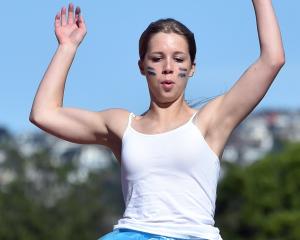Public input is being sought as an independent panel works to overhaul the Dunedin City Council's electoral system.
The panel, headed by Associate Prof Janine Hayward, a political studies lecturer, has called for public input on the future size and shape of the system.
That could include whether the city had the right number of councillors, wards and community boards, the need for guaranteed Maori representation and the system used to elect each.
The review would also seek to find new ways of encouraging people to vote, after turnout at the last local body elections in 2013 slumped to 43.10% in Dunedin.
Under existing arrangements, the council was made up of 14 councillors and one mayor, but voting was divided.
All residents could have their say on who became mayor, but councillors were elected by individual wards.
That meant 11 councillors were elected by the city's large central ward, and two in the Mosgiel-Taieri ward, but just one for the Waikouaiti Coast-Chalmers ward.
The system prompted complaints from some voters left unable to vote for a councillor at all in 2013, after Cr Andrew Noone was elected unopposed in the Waikouaiti Coast-Chalmers ward.
The electoral system was last overhauled in 2010, but another review was required by law this term, ahead of next year's local body elections.
The independent panel also included Len Cook, a former government statistician, Paulette Tamati-Elliffe, a Ngai Tahu Maori language revitalisation programme leader, and Dunedin Mayor Dave Cull.
The public had until April 30 to submit feedback, with forms available on the council website or its Civic Centre office, libraries or service centres.
A public meeting will also be held at the Dunedin City Library on April 20, before the panel makes initial recommendations to the council by July.
Advertisement













